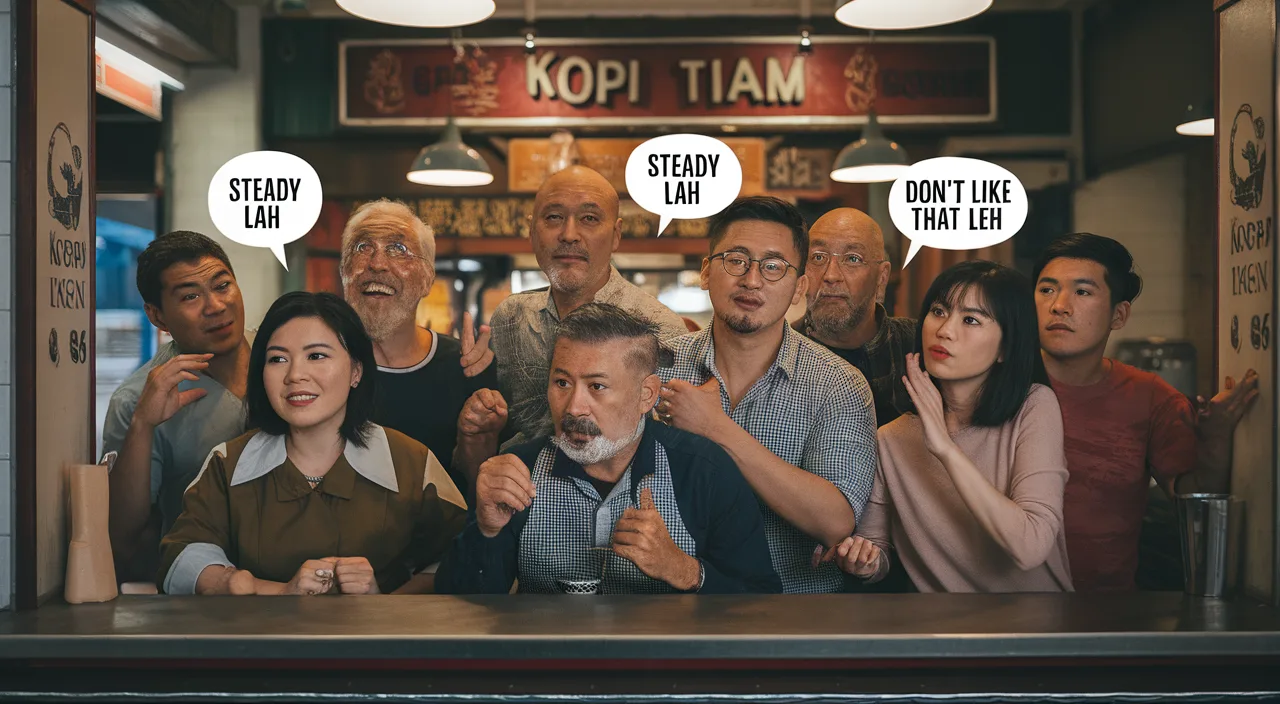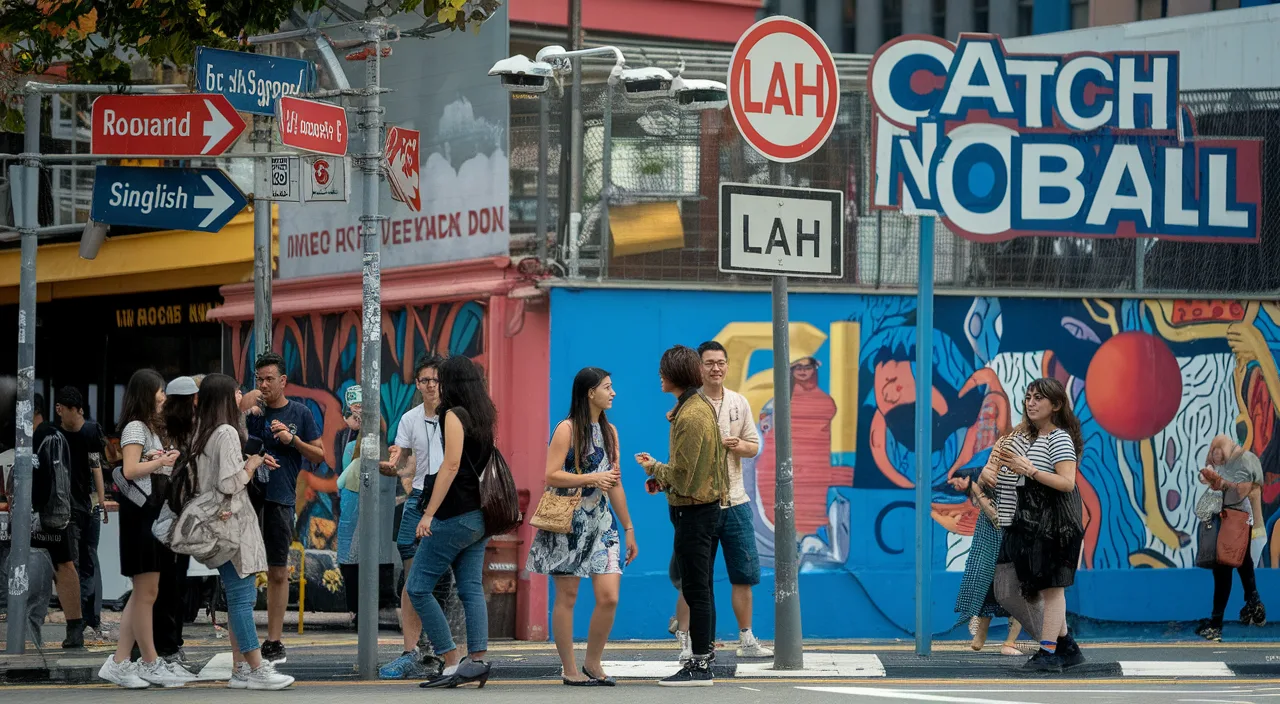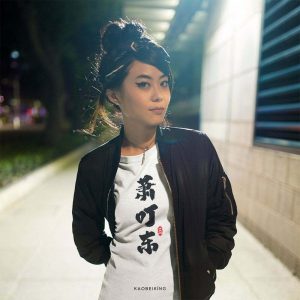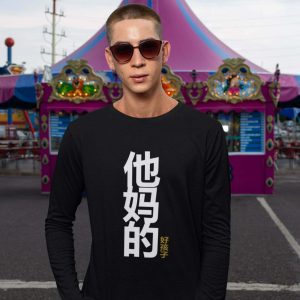What are some popular Singlish phrases and what do they mean?
Singlish phrases are a unique blend of English, Malay, Hokkien, Cantonese, Tamil, and Mandarin that create Singapore’s distinctive language. Popular Singlish phrases like lah, sian, and quitter never win carry meanings rooted in our culture, values, and history. Understanding Singlish helps you connect with authentic Singaporean expressions and the unique language of Singapore.
- Singlish phrases = cultural time capsule
- Cleverly blend different languages from Malay, Hokkien, and English
- Reveal deep insight into Singaporean life, behavior and values
- Not just slang: Singlish is our identity in casual, everyday language
- Examples include: Catch no ball, Don’t play play, Why you so like that
- Learn how to use them properly to sound like a true Singaporean
Understanding Singlish: More Than Just ‘Broken English’
Learning to speak Singlish means understanding that it’s not bad English — it’s a complex, expressive and efficient language system. Unlike standard English, popular Singlish expressions are emotionally charged and context-heavy. You don’t just hear Singlish — you feel it, especially when your grandmother scolds you.
Why are Singlish phrases so effective?
- They’re efficient: One word expresses multiple ideas — sian means bored, tired, and lazy mood combined
- Got musical tone: Our lah, lor, leh, meh all signal subtle moods. Can lor shows reluctant acceptance. Can lah means no problem!
- They bind people: Whether hawker uncle or finance professional in CBD, we all use Singlish phrases in casual moments
In practice, you’ve probably heard: Today weather damn hot sial, still must walk whole Orchard like that. Everyone nods. Nobody blinks. Meaning understood through these popular Singlish expressions.
-
hashtag, KaoBeiKing, Quote, Singlish/Hokkien, T-shirts, Typography
Price range: $30.00 through $38.00 Select options This product has multiple variants. The options may be chosen on the product page -
Chinese, KaoBeiKing, Quote, T-shirts, Typography
Price range: $30.00 through $38.00 Select options This product has multiple variants. The options may be chosen on the product page
The Origins of Popular Singlish Expressions
The unique language of Singapore emerged from necessity — living in a multilingual, multicultural hub where everyone needed to communicate. We mix and match languages to understand each other. That’s how Singlish phrases like catch no ball (from Hokkien’s bo tak ji) came about — meaning I don’t understand anything you just said.
Let’s explore where these popular Singlish expressions come from:
- Alamak: Malay origin. Expresses shock or disbelief. Like when ERP gantry lights up while you’re already broke.
- Kancheong spider: Hokkien + English. Overly anxious person. Like your friend who presses lift button 10 times.
- Sian half: Hokkien sian (tired/bored) + English half-dead. Combined = ultra-level exhausted emotion.
- Don’t play play: Warning from someone not to be messed with. Popularized by local comedians.
Understanding Singlish means recognizing it’s constantly evolving. Young people now say GG liao or booster drop — hybrid of global internet slang with our local twist.
Why ‘Quitter Never Win’ Is Such a Common Singlish Saying
Among popular Singlish phrases, quitter never win stands out as practically a national motto. You’ve definitely heard it before, usually from your parents when you wanted to give up piano lessons halfway. But where did this Singlish expression actually come from?
While the phrase existed in standard English, its survival and popularity in the unique language of Singapore reflects our values — grit, determination, and die-die-must-try spirit. It’s our kiasu DNA showing.
Here’s how this popular Singlish expression is typically used:
- Boss scolds junior: So fast give up? Quitter never win, you know?
- Coach tells student: Raining also must come training, quitter never win right?
See, it’s not about perfect grammar. When someone says quitter never win, they’re communicating: Don’t be weak, okay? Press on! That’s the power of Singlish phrases.
How Singlish Phrases Reflect Singaporean Values
Popular Singlish expressions are more than a way of talking — they reflect our soul. The unique language of Singapore mirrors our strengths and quirks, our shortcuts and long-winded expressions, our quick humor, and our obsession with efficiency.
Let’s decode how these Singlish phrases reveal our values:
- Can or not? — Efficiency, directness. We don’t dance around the bush.
- Don’t so kaypoh — Fierce privacy boundaries. Got limit okay?
- Kiasu — Fear of missing out, but also love being ahead. That’s why people queue at 5am for new bubble tea.
- Die die must try — Determination, adventurous spirit despite conservative roots.
All these popular Singlish expressions are verbal snapshots of our society. You want to understand Singaporeans? Start by listening to how we use Singlish phrases over coffee or in MRT after getting scolded by auntie.
Learning to Speak Singlish Without Sounding Like Try-Hard
This part quite stressful — especially for expats, or Singaporeans who grew up hearing British English at home. Learning to speak Singlish is like learning the unspoken rules of a friend group: You can’t just dive in and shout lah everywhere like confetti.
Tips to Learn Singlish Without Embarrassing Moments
- Listen more than you speak. MRT, coffee shop, army NS — all good training ground for understanding Singlish.
- Start light: Add one suffix: Can leh. or Not bad hor.
- Avoid overdoing: Don’t bombard like Can lah, okay leh, confirm one hor! Your friends will feel awkward.
- Practice naturally: Use popular Singlish expressions with friends, not customers or clients (unless they got pattern).
- Context matters: Don’t play play in office joking context is funny. But say in serious HR meeting? Don’t anyhow.
Cost Guide: Singlish Classes or Learning Resources in Singapore
| Type | Low-End | Mid-Range | High-End |
|---|---|---|---|
| Online informal courses / guides | Free – $20 | $30 – $50 | – |
| Interactive language apps (including Singlish modules) | Free | $10 – $15/month | – |
| Workshops / cultural immersion classes | $30 per session | $80–$120 (packages) | $200+ (custom coaching) |
Frequently Asked Questions
- Is Singlish officially recognised?
Not officially in education or legal systems, but widely accepted in pop culture and daily life. - Can learning Singlish help me connect better in Singapore?
Definitely. Locals warm up faster when they sense you speak their language. - What’s the difference between slang and Singlish?
Slang is one part of Singlish. Singlish also involves grammar changes, tonality and cultural expressions. - How do Singaporeans feel about Singlish?
Proud lah! Though some still worry about English standards. But most know when to switch between standard English and Singlish. - Are there formal ways to learn Singlish?
Not really formal, but plenty of guides, YouTube skits, comics, and short courses at language-interest centers exist. - Can Singlish be used in professional settings?
It depends. Usually not for client-facing roles, but among locals in casual moments? Confirm can. - Will Singlish fade away?
Unlikely. It keeps evolving with every generation and continues to be an identity marker, especially online and in memes.








